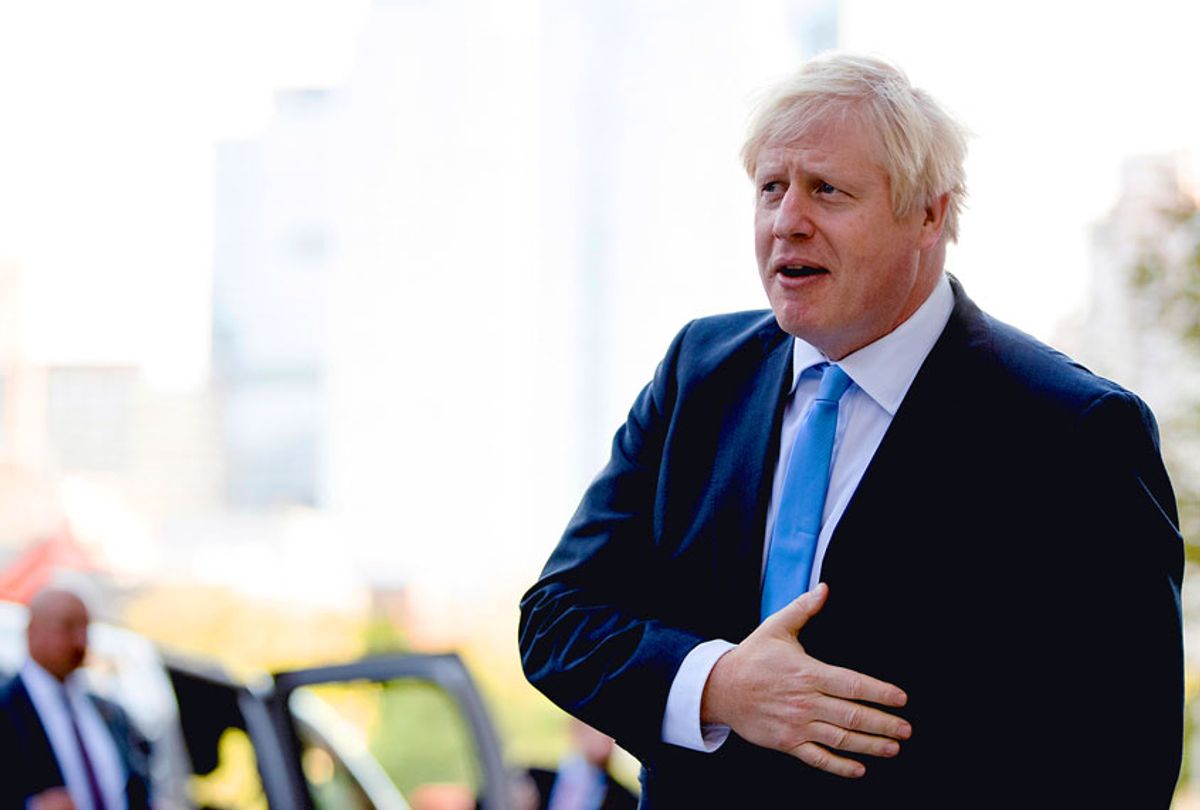Prime Minister Boris Johnson suffered a major blow to his premiership after the British Supreme Court ruled that his suspension of Parliament — an apparent attempt to shut down opponents of a "no-deal" Brexit — was unlawful.
The Supreme Court ruled on Tuesday that Johnson's move to prorogue, or suspend, Parliament earlier this month had prevented Britain's lawmakers from performing their public responsibilities in the lead up to Brexit. Supreme Court president Lady Hale said that "the effect on the fundamentals of democracy was extreme," according to the BBC.
With a new parliamentary session expected to begin on Wednesday, opposition members of Parliament have already said they plan to hold Johnson accountable for his actions in trying to prorogue their session until shortly before the Brexit deadline. Under Johnson's original plan, Parliament would not have reconvened until Oct. 14, just three days before a crucial European Union council meeting. Whether Johnson came back from that meeting with a new Brexit deal or not, Parliament would have had less than two weeks to resolve the matter before the Brexit deadline on Oct. 31.
Parliament had already rejected Johnson's call for a new general election before it was suspended, and the opposition remains divided over whether to try to force him out as prime minister or allow his government to collapse slowly.
Ian Blackford of the Scottish Nationalist Party said he favored an immediate move against Johnson: "The opposition has to do its job — we need to remove him and we need to do that through a motion of no confidence, leading to a general election. It has to come quickly, we have to seize the moment, we cannot leave him in office, he has to be removed."
Labour Party leader Jeremy Corbyn, who officially heads the opposition in Parliament, wants to delay a general election until "this government's threat of a disastrous no-deal is taken off the table," as he told Labour members in a keynote speech at the party's recent conference. Corbyn likely believes that Labour will have better odds of winning an election after the current Brexit mess is resolved.
Other opposition figures from different points on Britain's political spectrjm called for Johnson to go. Jo Swinson, leader of the centrist Liberal Democrat Party, said Johnson "was not fit to be prime minister." Even Brexit Party leader Nigel Farage, a borderline ally of Johnson's, said the Conservative government was "in trouble" and that "as a matter of honor," Johnson should offer to resign immediately.
For his part, Johnson struck a defiant tone while meeting with President Trump in New York on Tuesday. When Johnson was asked if he would resign after his latest defeat, Trump described it as a "nasty question" and later added, "I'll tell you, I know him well, he’s not going anywhere." Johnson affirmed this by saying, "No, no, no."
Johnson has faced a series of setbacks since becoming prime minister in July. Parliament almost immediately passed a law barring him from leaving the EU without a negotiated deal, and Johnson's attempt to call an election — which requires a two-thirds vote in Parliament — failed when Labour refused to go along. He has even been accused of lying to Queen Elizabeth II about his reasons for a prorogation of Parliament.
Prominent figures in Johnson's Conservative Party have turned against him as well. John Major, who succeeded Margaret Thatcher as prime minister in 1990 and held the office for seven years, said after Tuesday's decision: "No prime minister must ever treat the monarch or Parliament in this way again."

Shares